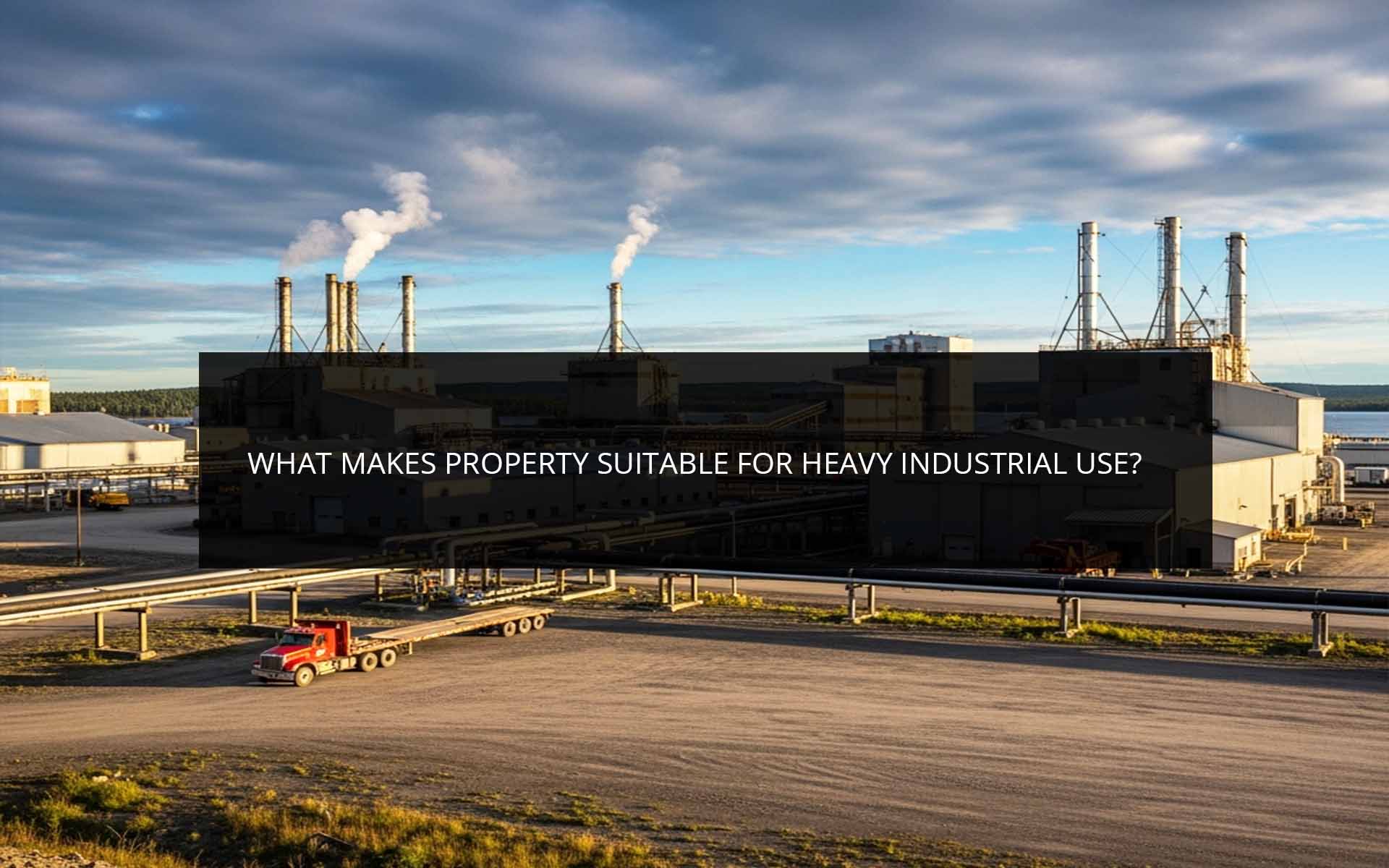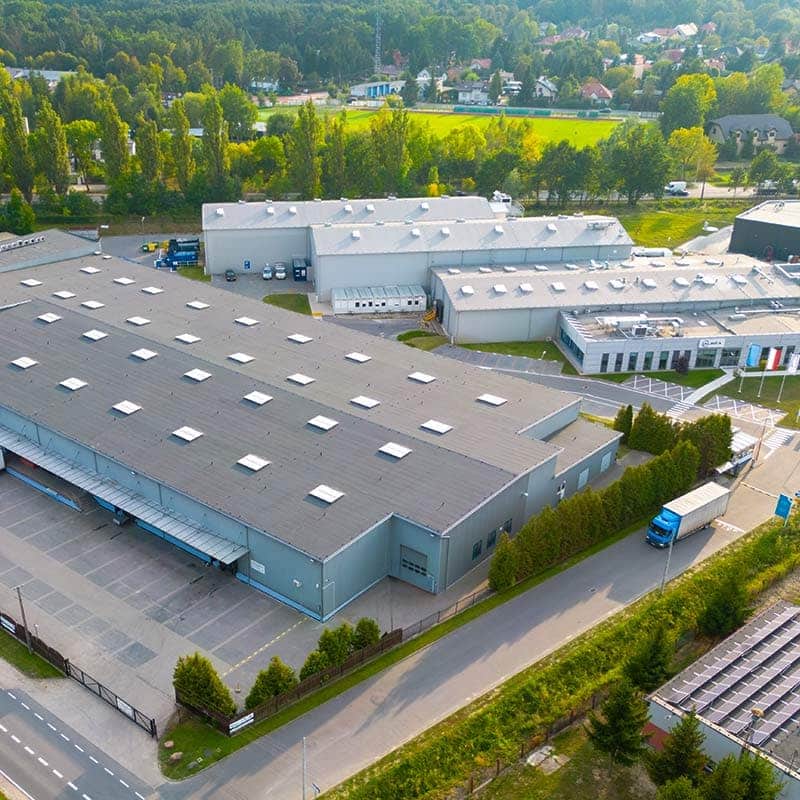When it comes to industrial real estate, not every building type has the same requirements. Where your average retail warehouse or food and beverage distributor has a broad range of real estate options to choose from when opening a new location, heavier applications are limited to sites specifically zoned for heavy industrial use.
Heavy industrial sites require much more than simple square footage. These businesses need facilities that can support complex and resource-intensive applications day after day. While vacancy rates are up somewhat in the warehouse sector, heavy industrial locations are getting harder to come by as reshoring efforts and the data center boom continue to make competition for these sites fierce.
What Defines a Location as Heavy Industrial?
Heavy industrial properties are specifically designed for large-scale operations that use a lot of resources and equipment. Here are some of the defining factors of a heavy industrial site:
- Reinforced structural capacity. Floors in these facilities must be built to withstand the combined weight of entire fleets of heavy equipment, such as automated assembly lines, heavy-duty racking, or advanced machine tools.
- High ceilings. Heavy industrial sites need high ceilings—usually 30 feet high or more—to accommodate cranes, monorail systems, high-volume fans, and other vertical equipment.
- High-capacity utility infrastructure. Simply put, advanced manufacturing facilities and other heavy industrial buildings use a lot of power. Keeping up with these needs typically requires high-capacity transformers and a three-phase electrical system to ensure consistent power flow. Some facilities will also need support for continuous use of natural gas, water, or compressed air, depending on the application.
- Optimal location. Heavy industrial sites depend on access to major highways, ports, and railways so they can efficiently bring in materials and send out finished goods. However, heavy industrial zoning generally requires these facilities to be located a good distance from residential areas, so finding the sweet spot between access and compliance can prove challenging.
- Outdoor space. A heavy industrial facility usually comes with a sizeable amount of land around the building itself, which businesses can use as storage yards, truck parking, rail spurs, and more. This space also allows for future expansion or allows for the installation of on-site renewables like solar panels or wind turbines to help offset the heavy power burden of the operation.
Which Businesses Need Heavy Industrial Sites?
Not every manufacturer needs a heavy industrial facility, but there are some industries that use them exclusively. These businesses are defined by processes that involve high heat, chemicals, high-volume material throughput, and significant amounts of heavy machinery. Some examples include:
- Metal forges/foundries/fabrication plants
- Automotive assembly
- Aerospace manufacturers and testing facilities
- Oil and gas refineries
- Chemical processors/producers
- Pulp and paper mills
- Cement mills
- Glass production
- Data centers
- Heavy machinery manufacturing (mining equipment, construction equipment, etc.)
- Mining and minerals processing
- Timber mills
- Shipbuilding
- Water treatment plants
Heavy industrial users generally need to install comprehensive and permanent infrastructure. By contrast, light industrial property users for things like warehousing, product assembly, or last-mile logistics often prioritize flexibility and access to urban markets over more permanent fixtures.
How an Industrial Real Estate Broker Can Help
Finding the right heavy industrial location for your needs involves a complex balancing act between technical requirements, zoning and permitting restrictions, and long-term business goals. Working with a broker that specializes in industrial real estate can help you navigate this complexity more easily.
“Selecting the right heavy industrial site is about protecting production continuity and reducing long-term risk,” says Frank P. Crivello, Founder and Chairman of industrial real estate broker Phoenix Investors. “A good site minimizes downtime, keeps compliance costs predictable, and gives you room to grow.”
An experienced industrial broker will understand how relevant factors such as local zoning codes, environmental regulations, utility infrastructure, and transportation infrastructure can affect the viability of a site for your operation. Heavy industrial sites are a specialized subclass of industrial real estate, and it’s important to work with a broker that understands the asset type so you can expedite site selection and avoid costly mistakes.
About Phoenix Investors
Founded by Frank P. Crivello in 1994, Phoenix Investors and its affiliates (collectively “Phoenix”) are a leader in the acquisition, development, renovation, and repositioning of industrial facilities throughout the United States. Utilizing a disciplined investment approach and successful partnerships with institutional capital sources, corporations, and public stakeholders, Phoenix has developed a proven track record of generating superior risk-adjusted returns while providing cost-efficient lease rates for its growing portfolio of national tenants. Its efforts inspire and drive the transformation and reinvigoration of the economic engines in the communities it serves. Phoenix continues to be defined by thoughtful relationships, sophisticated investment tools, cost-efficient solutions, and a reputation for success.






